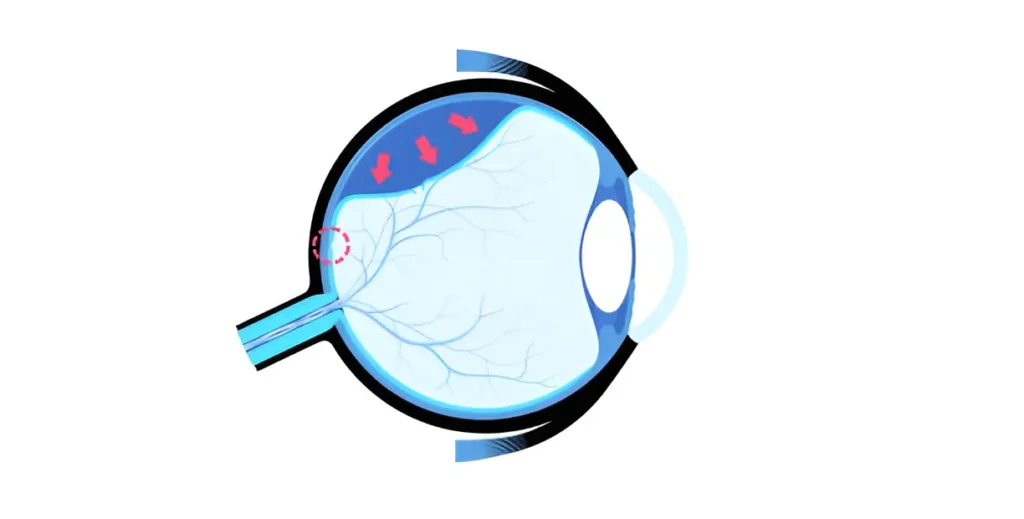Eye floaters are a common phenomenon experienced by many individuals. These small, dark, shadowy shapes that can look like spots, thread-like strands, or squiggly lines, tend to drift about when your eyes move and appear to dart away when you try to look at them directly. They often occur as a result of age-related changes that occur as the gel-like substance (vitreous) inside your eyes becomes more liquid.
Why Do We Experience Eye Floaters?
Typically, eye floaters become more prevalent with age. As we get older, the vitreous part of the eye starts to thicken or shrink. When the vitreous gel rubs or pulls away from the retina, it can create what we perceive as floaters. While generally harmless, a sudden increase in floaters could indicate more serious eye conditions, like a retinal detachment, which requires immediate medical attention.
Are Eye Floaters a Cause for Concern?
For the majority of people, eye floaters, although sometimes annoying, are typically not cause for concern and are just a normal part of aging. However, if they are accompanied by light flashes or a loss of peripheral vision, it’s critical to seek expert advice, as these could be warning signs of an underlying issue that needs prompt treatment.
Symptoms of Eye Floaters
The appearance of eye floaters varies from person to person. Some may see just a few drifting specks, while others may observe larger web-like lines or rings. It’s important to monitor the symptoms, especially if they worsen or are associated with other visual abnormalities, so appropriate action can be taken.
Can You Manage or Reduce Eye Floaters?
While there is no universal cure for eye floaters, most don’t usually require treatment. People tend to adapt to them over time and notice them less. When floaters are dense and numerous, they can impair vision, which might prompt a need for medical intervention.
Medical Interventions for Eye Floaters
In cases where floaters are severely affecting vision, there are a couple of treatment options available. A surgical procedure known as a vitrectomy removes the vitreous gel along with floating debris from the eye. Laser therapy is another treatment, which breaks up floaters to make them less noticeable. However, both treatments carry risks, and are usually reserved for the most severe cases.
When to See a Doctor?
If you notice a sudden increase in eye floaters, especially if accompanied by light flashes or peripheral vision loss, it’s crucial to visit an eye specialist promptly. These symptoms could indicate an urgent issue, such as retinal tear or detachment, which could lead to permanent vision loss if not treated promptly.
Lifestyle Adjustments for Managing Floaters
Though medical intervention is not often necessary, individuals can make lifestyle adjustments that may help manage the annoyance of floaters. For instance, wearing glasses with anti-reflective coating or utilising a pinhole glasses technique for reading can minimise the visibility of floaters. Similarly, ensuring optimum lighting conditions can make a significant difference.
Preventative Measures for Eye Health
To keep one’s eyes healthy and possibly prevent the formation or worsening of floaters, it’s essential to maintain a lifestyle that supports overall eye health. This includes regular eye check-ups, protecting eyes from UV light with sunglasses, managing health conditions like diabetes, and living a healthy lifestyle that includes a balanced diet rich in nutrients beneficial for eye health.
Conclusion
Eye floaters, those unassuming specs that drift through our field of vision, are often a normal consequence of aging but can occasionally signal a more severe condition. While most floaters will not require treatment and can be managed with lifestyle changes, an increase in symptoms, or the presence of additional abnormalities, should prompt a consultation with an eye care professional.
In summary, it’s important to pay attention to the health of our eyes, just as we do the rest of our bodies. Regular check-ups, protective measures, and prompt attention to symptoms such as eye floaters can all contribute to better eye health and overall wellbeing.
Also Read: When Should You Visit a Geriatric Doctor? Key Signs to Watch For


